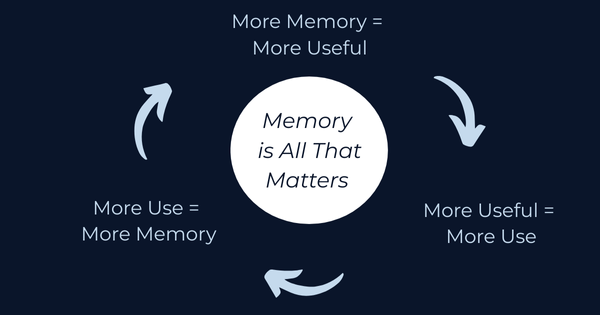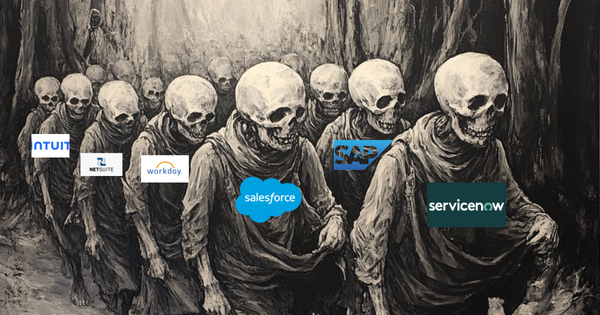Digital Brains - Request for Feedback

I’m seeking feedback on a free community I am considering launching.
The purpose of the community is to help people create, control, and leverage their own digital brain.
Below is an overview of the concept.
Appreciate any feedback on whether or not this is something that resonates.
Thanks!
Dave
What’s a digital brain?
A digital brain is an AI-powered system for storing, managing, and harnessing digital data and knowledge.
As with our physical brains, a digital brain needs 3 components:
- Storage- A place to store digital data and knowledge.
- Retrieval - A way to access its digital data and knowledge.
- Intelligence - A way to harness its digital data and knowledge.
We’ve been able to store and retrieve digital data and knowledge since the dawn of computers.
But we still had to use our physical brains to harness it.
The intelligence piece of our digital brains was missing…
Until now.
AI turns databases into Digital Brains
Databases and apps like Google Drive, email and address books enable the storing and retrieval of digital data and knowledge.
And AI now gives us the digital intelligence we need to harness it.
Digital Brain’s exist today
Google’s digital brain is called Gemini.
Microsoft’s is called co-pilot.
And Open AI’s digital brain is called ChatGPT.
Digital Brains are powerful…REALLY powerful
Digital brains don’t need sleep.
They can record, remember, and retrieve every piece of data and knowledge they’ve ever been given…
And now intelligence can be added to a digital brain with the click of a button.
Digital Brains can be a great thing
Digital brains like the ones mentioned above are available to everyone for free or very low cost.
This means the average person now has:
- Access to all publicly available digital information.
- The ability to retrieve any of that information in less than 1 second
- A super intelligence in their pocket to help them harness it.
And if you want to give a digital brain your data and knowledge, it will store, retrieve and help you harness that too.
But there’s a problem…
Companies currently own the digital brains we use.
We give them our data and knowledge, and they give us free use of their digital brains.
On the surface this may seem fine.
But it’s a terrible trade.
Would you want a company to own and control your physical brain?
Then you shouldn’t want a company to own and control the digital brain you use either.
Own your digital brain
I believe the solution to this problem is simple.
Every individual should own and control their digital brain, just like we do our physical brains.
This will result in:
- More individual freedom.
- A more diverse set of knowledge and ideas, that will result in more progress.
- More wealth, including more wealth for the average individual
The ability to own our digital brain exists today
Digital Brain Storage: Tools like Supabase can be used as digital brain storage.
Digital Brain Retrieval: Tools like LangChain can be used to build our digital brain’s retrieval logic, and connect it to our digital brain’s storage and external data sources.
Digital Brain Intelligence: The HuggingFace community develops and trains AI models and datasets anyone can own and use.
Tools like OpenWebUI and Ollama are working to make installing and interacting with your digital brain as simple as chatting with ChatGPT.
The above tools are all open source.
That means we don’t need a Big Tech company to build, own and control our digital brain…
We can do it ourselves.
But it’s currently too complicated for the average person
The storage, retrieval, and intelligence needed to own and control your digital brain is available to everyone.
But it’s currently too complicated for the average person to put all the pieces together.
I’m considering launching a free community for myself and others that are interested in working together to build, own and control their digital brains.
I’m already working with developers to build my own digital brain, and want your feedback.
Questions for you:
- Does my comparison of digital brains to physical brains make sense, or am I missing something?
- Would you be interested in following my progress in building my own digital brain?
- Are you interested in creating your own digital brain, or do you prefer to just use tools provided by Big Tech?
- Do you think others would be interested in this?
Any other positive or negative feedback on this idea is also welcome.
Thanks for reading!
Dave





